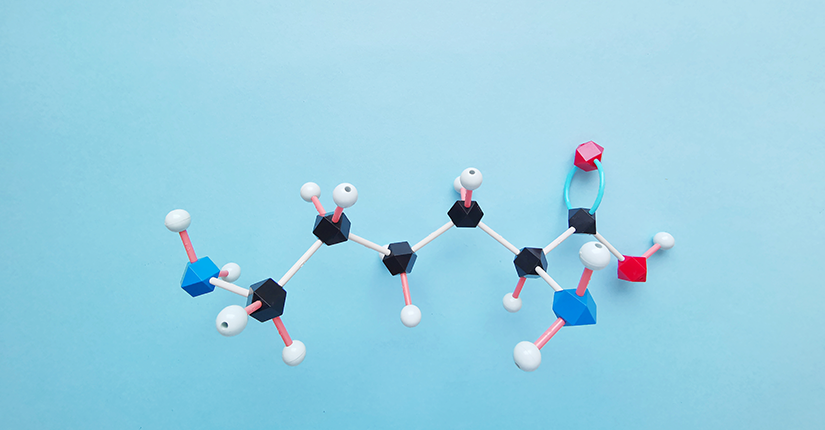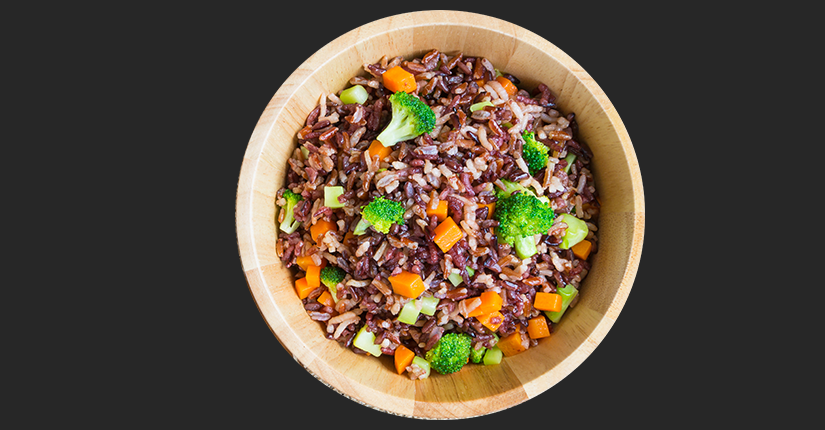By Nmami Life Editorial 09-Aug 2020 Reading Time: 7 Mins

Branched-chain amino acids (BCAAs) refer to a group of three essential amino acids: leucine, isoleucine and valine. These amino acids are grouped together because they are the only three amino acid to have a chain that branch off to one side.
Function of BCAA in Diet
Protein is known as the building blocks of life, but proteins are further made from their respective building blocks known as amino acids. Amino acids are small organic compound units that combine to form proteins. There are a total of 20 amino acids that are required for various body functions. 11 of these are non -essential which means they can be synthesized in the body while our body needs nine essential amino acids through diet as unlike non-essential amino acids, they are not produced in the body.
Benefits of BCAA’s
- BCAAs compose 30-40% of essential amino acids. BCAAs provide energy to the muscles. Therefore, these are essential during exercise.
- BCAAs inhibit muscle breakdown during exercise. Also, these play an important role in building muscles. Exercise leads to muscle tissue breakdown but consumption of BCAAs before exercise helps to prevent muscle degradation that occurs during exercise.
- BCAAs help to improve endurance as they suppress lactic acid production during exercise. Lactic acid is formed during intense exercises and it can cause rapid breathing, insomnia and stomach ache.
- BCAAs may also play a role in maintaining normal blood glucose levels. They do so by causing muscles to utilize glucose from the blood stream and preserving muscle and liver glycogen.
- In individuals with liver disease, BCAAs may help to improve liver function and decrease the risk of complications.
- Studies have shown that consumption of BCAAs lead to a more significant decrease in body fat and a greater increase in lean muscle mass compared with whole protein sources.
- Diseases can accelerate loss of muscle mass and body protein due to damaged protein synthesis. Leucine may help to maintain muscle mass in chronic diseases.
- BCAAs promote faster recovery after exercise so that you can push your body all over again.
Role of BCAA in Muscle Synthesis
Branched-chain amino acids increase muscle protein synthesis, since they are both anabolic (aid in building muscles) and anti-catabolic (preventing muscle damage).
Exercise leads to breakdown of muscles and increases the body’s need for alanine and glutamine .Alanine and glutamine are two amino acids that are linked with reduced muscle damage. Regular consumption of BCAAs supports the body with the materials required for both alanine and glutamine. During exercise, when glycogen stores are rapidly being finished, the liver produces glucose by converting L-alanine to energy .BCAAs help to maintain optimum levels of alanine needed to exercise and prevent muscle breakdown.
In one study, it was proved that people who regularly consume BCAA have 22% greater muscle synthesis compared to those who don’t. BCAA can help in protein synthesis without the need of other essential amino acids. BCAA can also help in reducing muscle soreness especially the DOMS (Delayed Onset Muscle Soreness) that develops 12-24 hours after an exercise and lasts for up to 72 hours.
BCAA Dietary Sources
Consuming a well-rounded healthy diet consisting of whole foods is an easy solution to fulfill daily BCAA requirements. Diets promote a steady absorption of protein rather than supplements which often lack other important nutrients. Rich sources of BCAAs include lean meat, fish, eggs, milk, tofu, and quinoa. Whole-wheat foods and brown rice are an easy option to increase leucine content in the diet. BCAA supplements conveniently provide muscle-supportive nutrients. Now whether these supplements offer an advantage over food sources or not is still under extensive research.
BCAA Supplements
Supplements are beneficial to those who are fitness enthusiasts and want to ensure maintain muscle mass maintenance. Another benefit is that BCAA supplements help preserve the storage of glycogen, which is the primary fuel muscles use for energy production. Abundant glycogen storage prevents muscle protein breakdown. In supplement form, BCAAs can help regulate blood sugar levels by preserving the sugar stored in the liver and muscles, and they can stimulate the body’s cells to take in sugar from the bloodstream. But, supplementation should be done only under the guidance of a nutritionist because self- supplementing can do more harm than good.
The dosage of BCAAs for individuals depends on various factors. Attributes like dietary protein intake, body composition and size, exercise schedule, health factors and goals. Mostly, doses ranging from 4 grams to 20 grams are consumed throughout the day.
Over to you
Eventually, it is advised to consult a registered dietician to determine the type and amount of dosage that is best suited for your personal health and wellness.


















